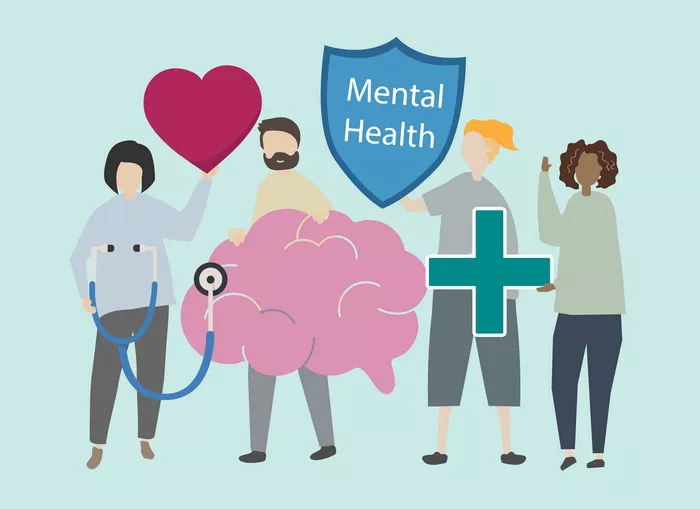Gluten intolerance, often referred to as gluten sensitivity, is a condition that has gained significant attention in recent years. With the rise in awareness of gluten-related disorders, many individuals are seeking clarity on what it means to be gluten intolerant. In this comprehensive guide, we delve into the intricacies of gluten intolerance, exploring its definition, symptoms, diagnosis, and management strategies.
What is Gluten Intolerance?
Gluten intolerance, also known as non-celiac gluten sensitivity (NCGS), is a condition characterized by adverse reactions to gluten-containing foods. Unlike celiac disease, where the immune system attacks the small intestine in response to gluten ingestion, gluten intolerance primarily manifests with gastrointestinal and extra-intestinal symptoms. While the exact mechanisms underlying gluten intolerance are not fully understood, it is believed to involve a combination of immune-mediated and non-immune-mediated pathways.
The Role of Gluten in Intolerance
Gluten, a complex mixture of proteins found in wheat, barley, rye, and their derivatives, plays a central role in gluten intolerance. Among its various components, gliadin, a prolamin found in wheat, has been implicated as a key trigger for adverse reactions in individuals with gluten intolerance. Upon ingestion, gliadin peptides interact with the immune system, leading to the release of inflammatory mediators and subsequent tissue damage. Additionally, certain carbohydrates known as FODMAPs (fermentable oligosaccharides, disaccharides, monosaccharides, and polyols) present in wheat and related grains may exacerbate symptoms in some individuals with gluten intolerance.
Recognizing the Symptoms
The symptoms of gluten intolerance can be diverse and may vary in severity and presentation among individuals. Gastrointestinal symptoms commonly associated with gluten intolerance include bloating, abdominal pain, diarrhea, and constipation. Extra-intestinal manifestations such as headaches, fatigue, joint pain, skin rashes (such as dermatitis herpetiformis), and mood disturbances (such as anxiety or depression) are also frequently reported. It’s important to note that symptom onset and duration can vary, with some individuals experiencing immediate reactions after gluten consumption, while others may have delayed symptoms that persist for days.
Diagnosing Gluten Intolerance
Diagnosing gluten intolerance requires a comprehensive approach that considers various factors, including clinical history, symptomatology, and diagnostic tests. While there is no single diagnostic test for gluten intolerance, healthcare providers may employ a combination of approaches to reach a diagnosis. These may include serological tests to measure antibodies against gluten (such as IgG and IgA antibodies), genetic testing for the presence of HLA-DQ2 and HLA-DQ8 alleles, and elimination diets followed by symptom monitoring to assess response to gluten avoidance. It’s important to rule out other gastrointestinal conditions, such as celiac disease, irritable bowel syndrome (IBS), and wheat allergy, which may present with similar symptoms.
Distinguishing Gluten Intolerance from Celiac Disease
Celiac disease and gluten intolerance are both gluten-related disorders, but they differ in their underlying mechanisms and clinical manifestations. Celiac disease is an autoimmune disorder characterized by the presence of specific antibodies (anti-tissue transglutaminase antibodies and anti-endomysial antibodies), along with histological evidence of villous atrophy and crypt hyperplasia in the small intestine. In contrast, gluten intolerance does not involve an autoimmune response or cause the same degree of intestinal damage seen in celiac disease. However, both conditions share common symptoms, emphasizing the importance of accurate diagnosis and appropriate management.
Treatment and Management Strategies
The primary treatment for gluten intolerance is strict adherence to a gluten-free diet, which involves eliminating all sources of gluten from the diet. This includes wheat, barley, rye, and certain oats, as well as processed foods containing hidden sources of gluten. Individuals with gluten intolerance may also benefit from nutritional counseling to ensure adequate nutrient intake and supplementation, particularly for nutrients commonly deficient in gluten-free diets, such as fiber, iron, calcium, and B vitamins. In some cases, probiotics and digestive enzymes may be recommended to help alleviate gastrointestinal symptoms and improve digestive health.
Navigating Social and Practical Challenges
Living with gluten intolerance can present social and practical challenges that extend beyond dietary restrictions. Dining out, traveling, and attending social gatherings may require careful planning and communication to avoid gluten exposure and ensure safe food choices. Education and awareness-raising among family, friends, and food service providers are crucial in creating a supportive environment for individuals with gluten intolerance. Additionally, resources such as gluten-free food labels, online support groups, and gluten-free dining guides can be valuable tools in navigating the social and practical aspects of gluten-free living.
The Importance of Ongoing Monitoring and Follow-Up
Regular monitoring and follow-up are essential components of managing gluten intolerance effectively. Healthcare providers play a vital role in monitoring symptom resolution, assessing nutritional status, and addressing any emerging concerns or complications. Periodic reevaluation may be necessary to confirm diagnosis, evaluate dietary adherence, and make adjustments to the management plan as needed. Additionally, ongoing support from healthcare providers, dietitians, and support groups can help individuals with gluten intolerance maintain long-term adherence to a gluten-free lifestyle and optimize their overall health and well-being.
Conclusion
Gluten intolerance is a complex and multifaceted condition characterized by adverse reactions to gluten-containing grains. While the exact mechanisms underlying gluten intolerance remain to be fully elucidated, advancements in research have enhanced our understanding of this condition and its clinical implications. By recognizing the diverse array of symptoms, employing appropriate diagnostic strategies, and implementing tailored management approaches, healthcare providers can effectively support individuals with gluten intolerance in managing their condition and improving their quality of life. Through ongoing education, advocacy, and support, we can empower individuals with gluten intolerance to navigate the challenges of gluten-free living and thrive in their daily lives.
[inline_related_posts title=”You Might Be Interested In” title_align=”left” style=”list” number=”6″ align=”none” ids=”5885,5880,5870″ by=”categories” orderby=”rand” order=”DESC” hide_thumb=”no” thumb_right=”no” views=”no” date=”yes” grid_columns=”2″ post_type=”” tax=””]
































